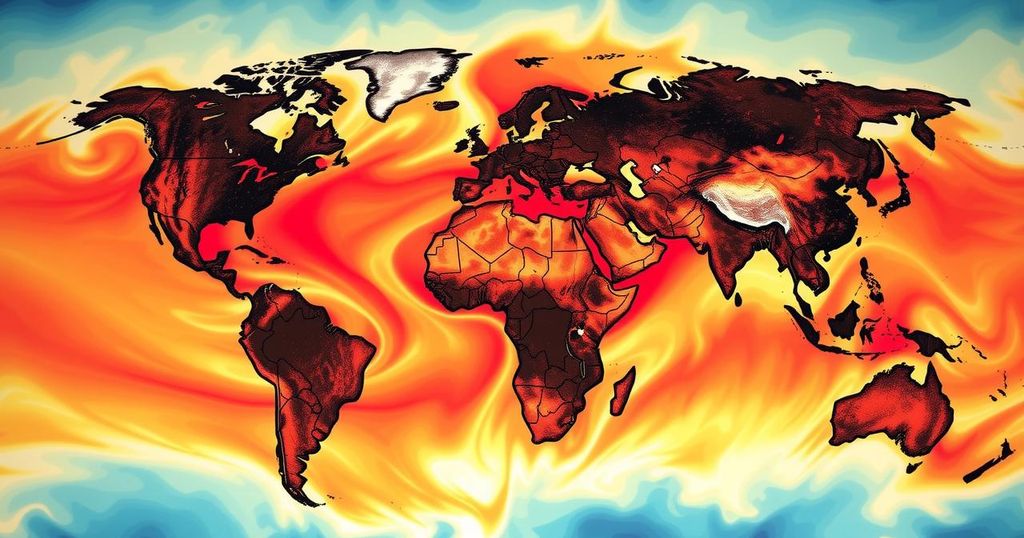In 2024, global temperatures exceeded 1.5°C above pre-industrial levels, marking a critical climate milestone. The spike is attributed to a severe El Niño and human-driven heating, resulting in significant weather extremes like heat stress and floods. Scientists warn of the serious implications tied to minor temperature increases, calling for urgent emissions reductions to prevent lasting damage.
In 2024, the global average temperature surpassed the critical threshold of 1.5°C above pre-industrial levels, as reported by the European Union’s Copernicus Climate Change Service. Although this does not imply a violation of the Paris Agreement’s long-term temperature goal, it highlights the urgent reality of climate change’s escalating effects. A combination of heightened human-induced warming alongside a potent El Niño phenomenon triggered unprecedented heatwaves, wildfires, and severe weather phenomena, particularly impacting Europe and Asia. Notably, on July 10, 44% of the planet faced severe heat stress, while increased atmospheric moisture resulted in catastrophic flooding in Valencia, Spain. Scientists emphasize the importance of vigilance, as even slight increases in temperature pose a risk of irreversible consequences, such as the loss of ice sheets. As the climate crisis intensifies, immediate and substantial measures to reduce emissions and adapt to climate changes are critical.
The climate crisis has reached a precarious tipping point, evidenced by the 2024 climate data indicating a rise of 1.5°C above pre-industrial levels—a significant marker established in the climate discourse. The Paris Agreement aims to limit global warming to well below 2°C, preferably to 1.5°C, to avert catastrophic climate impacts. This year’s record heat has been driven by natural phenomena such as El Niño, compounded by ongoing human activities that contribute to greenhouse gas emissions. The ramifications include extreme weather events that disrupt ecosystems and human life, necessitating urgent global action.
In summary, the surpassing of the 1.5°C temperature milestone in 2024 serves as a stark reminder of the climate crisis that humanity faces. Immediate actions to mitigate emissions and adapt to the increasingly severe impacts of climate change are non-negotiable. The scientific community continues to urge that every fraction of a degree matters, emphasizing that the ramifications of inaction could be dire and irreversible. Collective global efforts are imperative to avert further climatic escalation.
Original Source: www.africa.com






